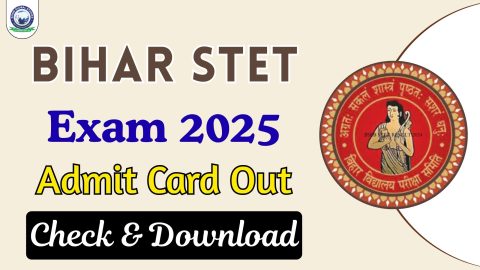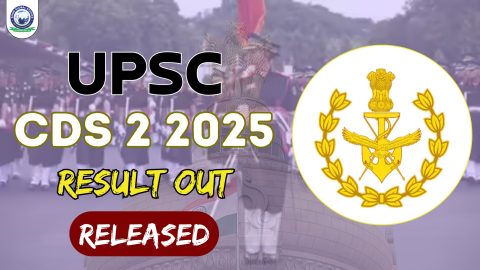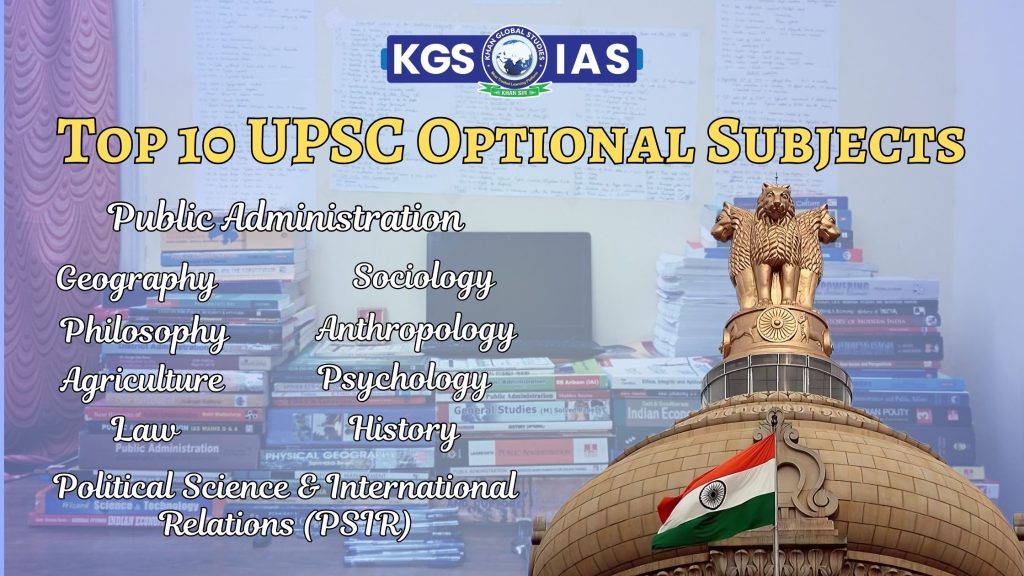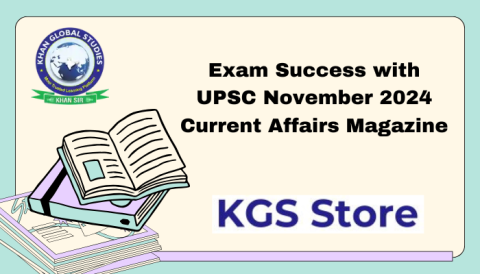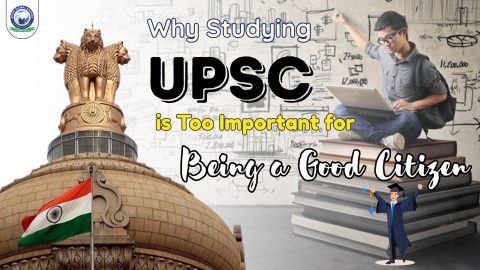Top 10 Scoring UPSC Optional Subjects: Choosing the right optional subject for your UPSC journey can make the difference between success and disappointment. With 500 marks riding on your optional papers—nearly 30% of your total Mains score—this decision deserves careful thought and analysis.
You’re probably feeling overwhelmed by the 48 optional subjects available. Should you pick Geography because everyone says it’s scoring? Or go with your graduation subject? What about those success rate statistics you keep hearing about?
This comprehensive guide breaks down the top 10 scoring optional subjects, gives you a practical framework for choosing, and answers the most common questions UPSC aspirants ask. By the end, you’ll have the clarity to make an informed decision that aligns with your strengths and maximizes your scoring potential.
Why Your Optional Subject Choice Matters More Than You Think
Your optional subject isn’t just another paper to clear—it’s your opportunity to stand out in a sea of candidates. While everyone struggles with the same General Studies papers, your optional is where you can showcase deep knowledge and analytical thinking.
The numbers speak for themselves. Toppers consistently score 300+ marks in their optionals, while average candidates often struggle to cross 250. This 50-60 mark difference can easily determine whether you make it to the final list or not.
But here’s what many candidates miss: the right optional subject doesn’t just boost your Mains score. It can make your Prelims preparation more efficient through syllabus overlap, strengthen your Essay writing with deeper insights, and even help during your Personality Test interview.
Understanding Success Rates: What the Data Really Tells Us
Before diving into specific subjects, let’s decode what success rates actually mean. When you see “Animal Husbandry & Veterinary Science has an 18.8% success rate,” it doesn’t mean this subject is necessarily easier.
Success rates depend on three key factors:
Quality of candidates: Subjects chosen by fewer, well-prepared candidates naturally show higher success rates.
Background match: Candidates choosing subjects aligned with their academic background perform better.
Preparation depth: Subjects with manageable syllabi allow for thorough preparation, leading to better performance.
The most meaningful metric isn’t just the success rate—it’s the absolute number of successful candidates and the scoring potential for someone with your background.
Top 10 Scoring Optional Subjects: Complete Analysis
1. Geography – The All-Rounder’s Choice
Geography consistently ranks among the most popular and scoring optional subjects for good reason. It offers excellent overlap with General Studies Papers I and III, making it a strategic choice for integrated preparation.
Scoring Potential: High (Average scorer gets 240-260 marks)
Syllabus Difficulty: Moderate to High
Resource Availability: Excellent
Why Geography Works:
- Strong overlap with Prelims and GS papers
- Diagram-based answers that examiners appreciate
- Current affairs integration opportunities
- Extensive study material availability
Challenges to Consider:
- Voluminous syllabus requiring consistent effort
- Scientific concepts in geomorphology and climatology
- Map-based questions need regular practice
Best Suited For: Science graduates, engineering students, and anyone comfortable with factual learning combined with analytical thinking.
2. Political Science & International Relations (PSIR) – The Current Affairs Champion
PSIR has gained tremendous popularity due to its direct relevance to General Studies Paper II and contemporary issues. It’s particularly attractive for those who enjoy staying updated with current affairs.
Scoring Potential: Very High (Top scorers cross 320 marks)
Syllabus Difficulty: Moderate
Resource Availability: Excellent
Why PSIR Works:
- Maximum overlap with GS II (Polity, International Relations)
- Current affairs knowledge directly applicable
- Helps in Essay paper and Interview preparation
- Dynamic content keeps preparation engaging
Challenges to Consider:
- International Relations requires global perspective
- Answer writing demands ideological depth
- Heavy competition due to popularity
Best Suited For: Arts graduates, journalism students, and those with strong current affairs knowledge.
3. Sociology – The Beginner’s Friend
Sociology stands out for its clear concepts, limited theory, and straightforward approach. It’s often recommended for first-time aspirants and working professionals due to its manageable preparation load.
Scoring Potential: Good (Most scorers get 250-270 marks)
Syllabus Difficulty: Low to Moderate
Resource Availability: Good
Why Sociology Works:
- Compact syllabus with clear boundaries
- Concepts relate to everyday social experiences
- Good success rate among candidates
- Overlaps with Essay and GS papers
Challenges to Consider:
- Increasing competition affecting marking standards
- Requires Indian social examples for better scores
- Theory application needs practice
Best Suited For: First-time aspirants, working professionals, and those preferring conceptual over factual learning.
4. Anthropology – The Science Student’s Humanities Option
Anthropology offers a unique blend of science and humanities, making it attractive for science graduates who want to diversify their knowledge base while leveraging their analytical background.
Scoring Potential: High (Good scorers cross 280 marks)
Syllabus Difficulty: Moderate
Resource Availability: Moderate
Why Anthropology Works:
- Compact, well-defined syllabus
- Physical anthropology suits science background
- Diagram and flowchart opportunities
- Less volatile marking compared to other humanities subjects
Challenges to Consider:
- Limited coaching options in smaller cities
- Physical anthropology requires scientific understanding
- Cultural anthropology needs diverse examples
Best Suited For: Science graduates, medical students, and those comfortable with both scientific and cultural concepts.
5. Public Administration – The Future Administrator’s Choice
Public Administration directly relates to the work civil servants do, making it highly relevant for UPSC aspirants. It offers an excellent theoretical foundation for administrative roles.
Scoring Potential: Good (Average range 240-270 marks)
Syllabus Difficulty: Moderate
Resource Availability: Good
Why Public Administration Works:
- Direct relevance to civil services work
- Good overlap with GS II (Governance)
- Theoretical framework for administrative concepts
- Helps in Interview and Essay preparation
Challenges to Consider:
- Can become monotonous for some candidates
- Requires understanding of administrative processes
- Theory-heavy content needs consistent revision
Best Suited For: Arts graduates, those interested in governance, and candidates targeting administrative services.
6. History – The Traditional Favorite
History has been a longtime favorite due to its extensive overlap with General Studies Paper I and Prelims. It offers rich content for Essay writing and Interview discussions.
Scoring Potential: Variable (Range from 220-300 marks)
Syllabus Difficulty: High
Resource Availability: Excellent
Why History Works:
- Maximum overlap with GS I and Prelims
- Rich material for Essays and current affairs analysis
- Develops analytical and writing skills
- Abundant study resources available
Challenges to Consider:
- Extremely vast syllabus from ancient to modern periods
- Requires memorization of dates, events, and personalities
- Answer writing demands historiographical knowledge
Best Suited For: Arts graduates, those with strong memory, and candidates who enjoy narrative-based learning.
7. Philosophy – The Short Syllabus Champion
Philosophy stands out for having the most compact syllabus among all upsc optional subjects. Despite its reputation for being abstract, it offers high scoring potential for the right candidates.
Scoring Potential: Very High (Top scorers cross 320 marks)
Syllabus Difficulty: High (Conceptually challenging)
Resource Availability: Moderate
Why Philosophy Works:
- Shortest syllabus among all optionals
- Overlaps with Ethics (GS IV) and Essay paper
- Develops critical thinking and analytical skills
- Less competition due to perceived difficulty
Challenges to Consider:
- Abstract concepts require deep understanding
- Limited coaching and study material
- Answer writing style needs specific approach
Best Suited For: Arts graduates, those comfortable with abstract thinking, and candidates with strong writing skills.
8. Economics – The Policy Analyst’s Choice
Economics provides an excellent foundation for understanding government policies and their implications. It’s particularly valuable for those interested in economic administration.
Scoring Potential: Good (Range 250-280 marks)
Syllabus Difficulty: Moderate to High
Resource Availability: Good
Why Economics Works:
- Direct overlap with GS III (Economy)
- High relevance in policy understanding
- Mathematical approach appeals to science students
- Growing importance in governance
Challenges to Consider:
- Mathematical concepts can be challenging for arts students
- Requires understanding of economic models and theories
- Current economic scenario knowledge essential
Best Suited For: Commerce graduates, those comfortable with quantitative analysis, and candidates interested in economic policy.
9. Psychology – The Human Behavior Expert’s Pick
Psychology offers insights into human behavior and mental processes, making it valuable for administrative roles that involve public interaction and policy implementation.
Scoring Potential: Good (Average 250-270 marks)
Syllabus Difficulty: Moderate
Resource Availability: Moderate
Why Psychology Works:
- Overlaps with Ethics and Essay papers
- Relevant for administrative and social issues
- Scientific approach with practical applications
- Growing recognition in policy circles
Challenges to Consider:
- Limited overlap with other UPSC papers
- Requires understanding of psychological theories and research
- Case study approach needs practice
Best Suited For: Science graduates, social work background, and those interested in behavioral sciences.
10. Law – The Constitution Expert’s Option
Law provides a deep understanding of legal frameworks and constitutional provisions, directly relevant to administrative work and policy implementation.
Scoring Potential: Good (Range 240-270 marks)
Syllabus Difficulty: High
Resource Availability: Good
Why Law Works:
- Strong overlap with Polity in GS II
- Constitutional knowledge valuable for civil services
- Develops logical reasoning and analytical skills
- Highly relevant for administrative decision-making
Challenges to Consider:
- Technical legal language and concepts
- Requires understanding of landmark judgments
- Regular updates needed due to evolving legal landscape
Best Suited For: Law graduates, those with legal background, and candidates interested in constitutional and administrative law.
The SMART Subject Selection Framework
Making the right optional choice requires a systematic approach. Use this framework to evaluate subjects objectively:
S – Scoring Potential Analysis
- Research historical success rates and average scores
- Look at toppers’ performance in recent years
- Consider marking trends and examiner expectations
M – Match with Your Background
- Evaluate your graduation subject compatibility
- Assess your interest and aptitude level
- Consider your learning style preferences
A – Availability of Resources
- Check for standard textbooks and study materials
- Research coaching options in your location
- Ensure test series and previous years’ papers are accessible
R – Relevance to Other Papers
- Analyze overlap with GS papers and Prelims
- Consider contribution to Essay and Interview preparation
- Evaluate time efficiency in integrated preparation
T – Time Investment Required
- Assess syllabus volume and complexity
- Consider your available preparation time
- Factor in your other commitments and constraints
Resource Availability Analysis
High Resource Availability
- Geography, History, Political Science, Sociology
- Multiple coaching options, abundant books, regular test series
Moderate Resource Availability
- Anthropology, Public Administration, Economics, Psychology
- Good coaching in major cities, standard books available
Limited Resource Availability
- Philosophy, Law, Literature subjects
- Coaching options limited, requires more self-study
Choose subjects with resource availability matching your learning style and location constraints.
Making Your Final Decision: A Step-by-Step Process
Step 1: Self-Assessment
List your academic background, interests, strengths, and constraints. Be honest about your learning preferences and available time.
Step 2: Shortlist 3-4 Subjects
Based on the SMART framework, shortlist subjects that score well on multiple parameters.
Step 3: Trial Run
Spend 2-3 days studying basic concepts and solving previous year questions for each shortlisted subject.
Step 4: Seek Guidance
Consult successful candidates, teachers, or mentors who can provide insights based on your specific situation.
Step 5: Final Decision
Make your choice based on comfort level, scoring potential, and long-term preparation strategy.
Common Mistakes to Avoid
Following Trends Blindly: Just because a subject is popular doesn’t make it right for you.
Ignoring Your Background: Choosing subjects completely unrelated to your academic foundation increases preparation burden.
Overemphasizing Success Rates: High success rates often reflect better-prepared, fewer candidates rather than subject ease.
Last-Minute Changes: Switching subjects late in preparation can be disastrous for your timeline.
Neglecting Resource Availability: Choosing subjects with limited study materials or coaching can hamper preparation.
Your Next Steps
Choosing the right optional subject is crucial, but remember—there’s no perfect choice that works for everyone. The best optional for you is the one that aligns with your strengths, interests, and preparation strategy.
Start by honestly assessing yourself using the SMART framework. Shortlist subjects that score well on multiple parameters. Test your comfort level with basic concepts from each shortlisted subject.
Most importantly, once you make your choice, commit to it fully. Success in UPSC comes from consistent, focused preparation rather than perfect subject selection. Your dedication and smart work will ultimately determine your success, regardless of which optional you choose.
Remember, thousands of candidates have succeeded with every optional subject available. What matters is finding the one that resonates with you and preparing it thoroughly. Trust your analysis, make your choice, and give it your best effort. Your UPSC dream is achievable with the right strategy and unwavering commitment.
Frequently Asked Questions
Which optional subject guarantees the highest score?
No subject guarantees high scores. Success depends on your preparation, understanding, and answer-writing skills. However, subjects like Philosophy and PSIR have shown higher scoring potential in recent years.
Should I choose my graduation subject as optional?
Having a background helps, but it’s not mandatory. If your graduation subject aligns with your interests and UPSC requirements, it’s advantageous. Otherwise, choose based on aptitude and preparation feasibility.
How much time should I dedicate to optional preparation?
Typically, optional subjects require 30-40% of your total study time. This translates to about 4-5 hours daily during the initial phase and 2-3 hours during revision.
Can I change my optional subject after starting preparation?
While possible, it’s not recommended unless you’re completely unable to grasp the subject. Changes should ideally happen within the first 2-3 months of preparation.
Do coaching classes guarantee success in optional subjects?
Coaching provides structure and guidance but doesn’t guarantee success. Your effort, consistency, and understanding matter more than coaching alone.
Which optional subjects have the best teacher-student ratio in coaching?
Popular subjects like Geography and PSIR have more coaching options but also more students. Subjects like Anthropology and Philosophy might offer better individual attention due to smaller batch sizes.
Should I choose technical subjects if I’m from a science background?
Technical subjects can be scoring for science graduates, but consider the vast syllabus and limited GS overlap. Subjects like Anthropology or Geography might offer better overall benefits.

